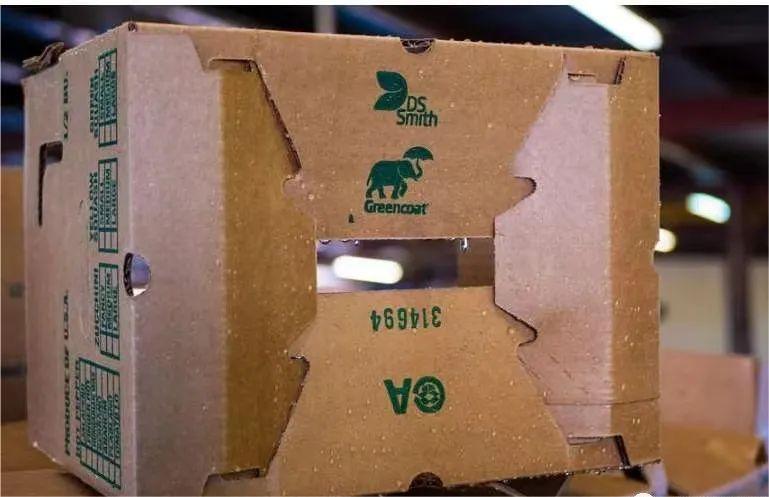This solution of Desma solves the problem of carton moisture and the future direction of carton recycling!
As online shopping booms, nearly half of consumers say they have received cardboard packaging damaged by rain, according to a survey by paper and packaging industry leader Desma. After a spike in e-commerce business triggered by the COVID-19 pandemic, 44% said their carton deliveries were damaged by rain. Given that the top 70 metro areas in the United States receive rain on average every four days, and e-commerce remains popular after the epidemic, the problem is expected to be widespread in the United States. More than half said they expect their online purchases to increase.

Desma's survey also showed a broad appeal for eco-friendly products, with more than 80% saying the sustainability of packaging is important to them - so much so that a large group is willing to pay more for their products. "With e-commerce becoming part of our daily lives and consumer demand for sustainable products growing, our mission is to innovate to ensure we not only protect packaging, but design them for sustainable results. Weather can't be an excuse for wet and damaged online orders, or discourage recycling because of the need for weather protection, "said Melanie Galloway, vice president of sales, marketing and innovation at Desma.
In response to an obvious challenge, Dessma has developed Greencoat, a coated, water-resistant, fully recyclable corrugated packaging solution. The company's innovative product line is designed to meet the growing demand for sustainable packaging from consumers and businesses. In a survey of 1,000 adults conducted Oct. 14-18, nearly two-thirds said they were more likely to buy items packaged or packaged in reusable or recycled paper or cardboard. Many shoppers (about 30%) said they were willing to pay 24% more for the sustainability of their products.
As an innovative plastic-free solution, Desma's Greencoat can provide more protection from the initial shipper to the consumer's doorstep, eliminating the need for plastic bags to protect the product on the customer's doorstep, and is suitable in place of other plastic packaging. Greencoat has played an important role in helping the company achieve its goal of removing 1 billion pieces of problematic plastic from packaging by 2025 and working with partners to find solutions for difficult-to-recycle packaging.
The development of Greencoat has enabled more than 530,000 tonnes of corrugated packaging to be recycled instead of landfilled and has reduced greenhouse gas emissions by almost 1 million tonnes in eight years. This is equivalent to reducing emissions from 373,247 vehicles per year or saving 86,169 households annual energy consumption. Desma supports a circular economy aimed at reducing and eliminating waste in its operations and advocates for the reuse of materials as part of its "Sustainability Strategy Now and Next", the company will replace problem plastics with packaging and recycling by 2030, reducing customer carbon emissions and eliminating consumer packaging waste.
In addition, Michael Oyer, who was recently appointed as the new Managing Director of Desma Group's European Recycling Business, shared the main challenges facing fiber-based recycling, the company's future goals in this area and Desma and Views on what the future of the recycling industry as a whole might look like.
He mentioned that we are already seeing technologies such as AI cameras being used for fiber-based collection and processing to help reduce pollution - an exciting proposition that will become more commonplace in the paper industry over the next few years. Recycling plays an important role in providing a circular economy designed to extend the lifespan of materials, and he looks forward to playing his part in helping Desma accelerate the transition to a circular economy.
In terms of the main objective, Dessma has plenty of opportunities to help further improve collection rates across Europe. Dessma attracted Michael Oyer because of its mission to "redefine packaging for a changing world". With the pace of change in our world, it is important to adopt new ways of doing things, including seizing new technologies, learning lessons from other industries and other material recycling, the combination of these three things will help ensure we recycle as much fiber as possible.
Currently, the challenge facing the fiber-based recycling industry is often the twin challenge of obtaining high quantities and high-quality materials. As a large recycler, Desma needs to be able to capture as much fiber-based packaging as possible for recycling. For this, fiber-based packaging should be separated from other recycling streams, as when it is mixed with other materials, it greatly increases the chance of contamination and generally reduces the amount of material that can be recycled - source-separated collection is key to addressing this challenge.
Desma's own data and experience confirm that the best way to improve the quality of recycled materials is to separate the materials from the source, the point at which they are placed in the recycling container. In fact, Desma's NIR data shows that paper collected by mixing can have more than twice the level of plastic contamination itself compared to source-separated collection. So by working more closely with customers and sharing this type of data with them to help inform them about the quality of the material they produce for recycling, Desma can help ensure that materials are less likely to be contaminated, reducing the need for materials to be returned to customers for reclassification or alternative disposal. Collection and sorting is the key to improve the collection rate of fiber packaging, and the collection rate of fiber packaging has generally been at a high level, which is a good thing.
